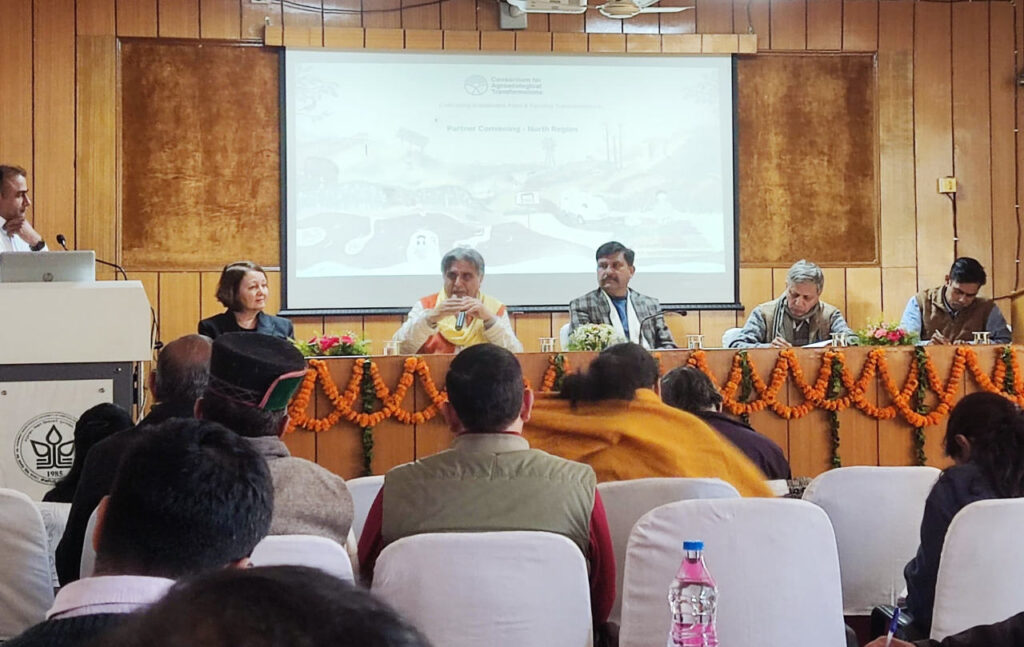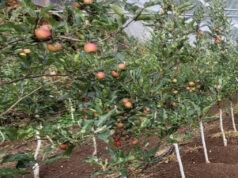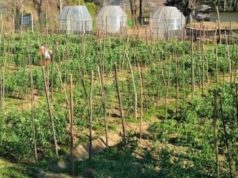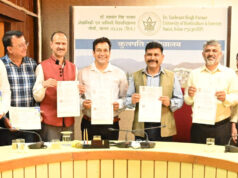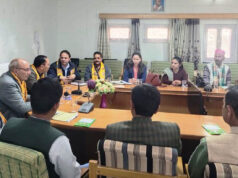Nauni/Solan – Agroecology is being recognised as a powerful pathway to revive rural economies, improve farmers’ incomes, and tackle climate change. During the Consortium for Agroecological Transformations (CAT) North Region Convening at Dr YS Parmar University of Horticulture and Forestry (UHF), Nauni, participants from across northern India stressed the urgent need to transform current food systems and shift towards nature-friendly farming practices.
Agroecology, an approach that blends ecological science with traditional farming knowledge, is emerging as a sustainable solution to the multiple challenges faced by agriculture today—rising input costs, soil degradation, water scarcity, and growing climate risks. By reducing reliance on chemical fertilisers and pesticides, promoting crop diversity, and prioritising soil health, agroecology offers a way forward that benefits both farmers and the environment.
“Agroecology is not just about growing food; it’s about rethinking the entire food system,” said food policy expert Devinder Sharma. “We must adopt models that secure fair prices for farmers, reduce their dependence on expensive inputs, and offer consumers healthy, safe food.”
Natural farming, a key part of the agroecology movement, was highlighted as a practical, low-cost method that can help small and marginal farmers achieve better incomes without harming the ecosystem. By using bio-fertilisers, compost, and traditional pest management methods, natural farming lowers costs while improving soil fertility and crop resilience.
Professor Rajeshwar Chandel, Vice Chancellor of UHF Nauni, pointed out that natural farming is already showing positive results. “The time has come for all institutions, civil society, and governments to work together to promote agroecology and natural farming. These methods are essential not only for rural development but also for addressing the challenges of climate change,” he said.
Experts at the event also underlined the need for better collaboration across sectors to strengthen agroecology on the ground. Minhaj Ameen from the Bharat Agroecology Fund said, “India is at a turning point. Agroecology offers answers to our interconnected crises—whether it’s the economic struggle of farmers or the degradation of natural resources. But this transition requires collective effort.”
There was a strong emphasis on supporting farmers who adopt natural and organic practices by ensuring better market access and rewarding them for the ecological services they provide, such as protecting biodiversity, conserving water, and improving soil health. Participants also called for establishing natural farming cells in agricultural universities and extension centres to give farmers the knowledge and technical support they need.
CAT has already begun work in selected block-level landscapes to develop agroecological models aimed at demonstrating how farmer-led, sustainable farming systems can succeed with the right support. Over the coming years, the initiative plans to expand these efforts across the country, focusing on long-term collaboration, research, and policy support to strengthen the agroecology movement.
As climate change accelerates and ecological challenges deepen, experts believe that agroecology is no longer an option but a necessity. With growing support from farmers, scientists, and policymakers, agroecology and natural farming are paving the way for a future where rural economies thrive, and the environment is restored.


